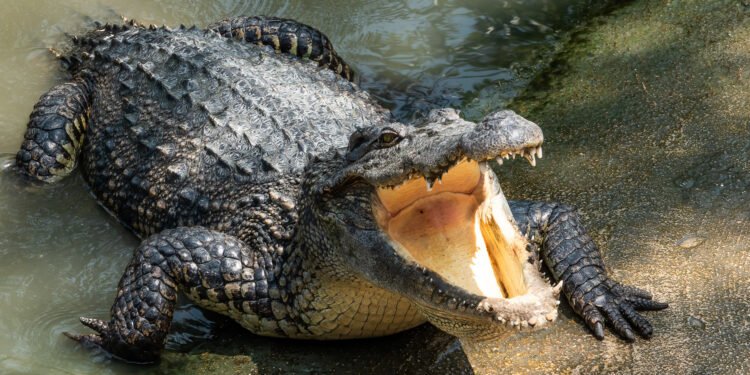Kendrapara (Odisha)- Panic gripped Koladhia panchayat under Aul block of Odisha’s Kendrapara district after a woman went missing following a suspected crocodile attack in the Kharasrota river on Sunday afternoon.
The victim, identified as 40-year-old Kajal Mohanty, had reportedly entered the river for ablution when a crocodile suddenly attacked and dragged her into the water. Local residents immediately began a search operation, scouring the riverbanks and nearby waters in hopes of rescuing her, but their efforts yielded no result by evening.
This tragic incident has once again drawn attention to the growing threat of human-crocodile conflict in the region, particularly in areas surrounding the Bhitarkanika National Park. The park, known for its dense mangrove ecosystem, is home to nearly 1,800 saltwater crocodiles—making it one of the largest habitats for the reptile in India.
Residents allege that crocodiles often stray from the sanctuary into nearby rivers such as Kharasrota, Brahmani, and Hansua, posing significant risks to local communities. The villages in Aul, Rajnagar, and Pattamundai blocks remain particularly vulnerable.
According to official records, at least 22 people have been killed in crocodile attacks in Kendrapara district between the financial years 2019–20 and 2023–24. In addition, numerous livestock have also fallen prey to the reptiles.
Despite repeated appeals from villagers, calls for effective safety measures such as riverbank fencing, awareness drives, and the installation of warning signs remain inadequately addressed.
Forest officials have been informed about the incident and are expected to join the search and rescue efforts. However, local anger is mounting over what is seen as a lack of proactive steps by the administration to prevent such recurring tragedies.
As the search for Kajal Mohanty continues, fear and uncertainty loom large over the riverine communities of Kendrapara, where the line between coexistence with nature and conflict with wildlife grows ever thinner.






